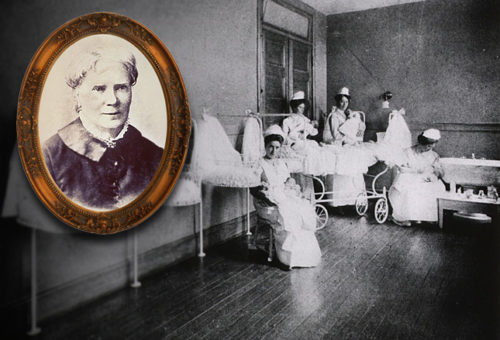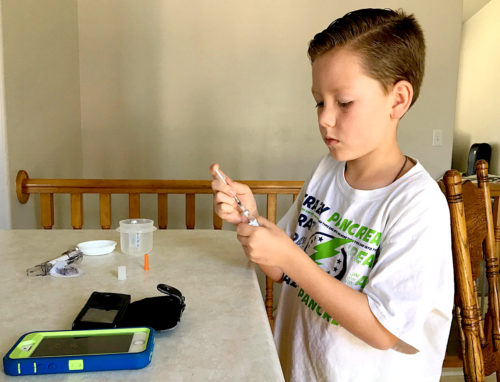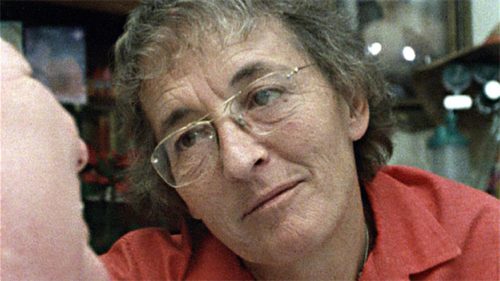We’ve been following a list of the 50 most influential physicians in history compiled by a medical magazine and have reached number 32 with Dr. Elizabeth Blackwell.
A lot has been written about her, I suppose mostly due to the fact that she was the first woman to earn a medical degree in the United States. No small feat; but, it’s difficult to describe how to call it: serendipity? Chance? Accidental? Stubbornness? Tenacity? Luck?
Read more →
Talk To Teens and other people
You just heard Celeste Headlee of NPR assert that: “Actually talking TO teens is easy, it’s having them listen while you’re doing it that takes some amount of skill.” And it’s absolutely true, you can talk to teens if you know the rules.
Ms. Headlee has worked as a radio host for decades, and she knows the ingredients of a great conversation: Honesty, brevity, clarity and a healthy amount of listening. She shares 10 useful rules for having better conversations. “Go out, talk to people, listen to people,” she says. “And, most importantly, be prepared to be amazed.”
When your job hinges on how well you talk to people, she tells us, you learn a lot about how to have conversations — and that most of us don’t converse very well. Since 1999 she has worked in public radio as a reporter, host and correspondent for NRP and on shows like “talk of the Nation,” “All things considered” and “Weekend Edition.” In addition she still sings professional opera and is a granddaughter of composer William Grant Still.
The 10 “takeaways” – Talk To Teens
1- Don’t multi-task; be in the moment, don’t be half in.
2- Don’t pontificate – assume there’s something you can learn. Bill Nye says: “everyone you meet knows something that you don’t.”
3- Use open ended questions – who, what, where, when why. DON’T USE: “did you feel terrified?” DO USE: “how did that feel?”
4- Go with the flow. Thoughts will come into your mind and you need to let them GO right out of it. Your own thoughts (experiences) are distractions.
5- If you don’t know, say that you don’t know. NPR knows they are accountable for everything they say, talk shouldn’t be cheap. You are accountable for what you claim.
6- Don’t equate YOUR experience with theirs. If they lost a family member, don’t start talking about loosing yours. They are NOT the same, and this is not about you. Someone asked Stephen Hawking what his IQ was. He responded “I have no idea, people who brag about IQ are losers.”
7- Try not to repeat yourself, it’s condescending and it’s really boring.
8- Stay out of the weeds of your experiences. People don’t care about the names, dates, places or the specifics of things that you struggle to remember anyway. People don’t care, forget about your details.
9- Listen – (not the last but the most important) Calvin college said “no man ever listened himself out of a job.” When I’m talking I’m in control, I’m center of attention. It Takes effort and energy to actively pay attention to someone; but if you can’t do that, you’re not having a conversation.
10- Be brief
Headlee reveals: I keep my mouth shut as much as I can, I keep my mind open, and I’m always prepared to be amazed. She had a Famous grandpa. People came from all over to talk with him. Afterward her mom would come to her and ask: “do you know who that was?” She said that “I grew up thinking everyone has some hidden amazing thing about them.”
The Environmental Determinants of Diabetes in the Young (TEDDY) study holds a deep interest for me—really everything about type 1 diabetes. And has, actually, from the very first clinical years of medical school.
Service with Dr. Marv Rallison in pediatric endocrine clinic gave me many early career “firsts” which continued into leading diabetic clinics of my own during my residency and obtaining grants for early studies of hemoglobin A1C (glycosylated hemoglobin)—which eventually revolutionized care of diabetic children and has become the current mainstay of management.
Read more →
Neuroscientist Greg Gage—Plants and Brains
Co-founder of “Backyard Brain”
Perhaps you are one of the million and a half people who’ve already watched this video on YouTube about brains and plants—it did go viral after all.
So, what do you think now that you’ve watched the video? Do plants have brains? Greg showed that plants can move when they decide they want to by creating electronic action potentials just like the heart of humans.
He showed that plants can move when they want to see the sun better, when they are touched and when they find something to eat. And, he showed that some of them can actually count and even “talk” to other plants using their action potentials. Does that mean that they have a “brain?”
Despite dealing with it—and often even causing it—the medical profession woefully neglected the slightest consideration of “dying” until 1969 when Dr. Elisabeth Kübler-Ross wrote “On Death and Dying” about her experiences with terminal patients.
Read more →
Happy New Year From Pediatric House Calls
 A New Year, Yippie!
A New Year, Yippie!
From DJmed.net – Pediatric House Calls
[About this time every year things get a bit hectic around the homestead and we need to take a little hiatus. Hope you and everyone you care about have a perfect holiday season—wherever you may be! See you again in the new year.]




